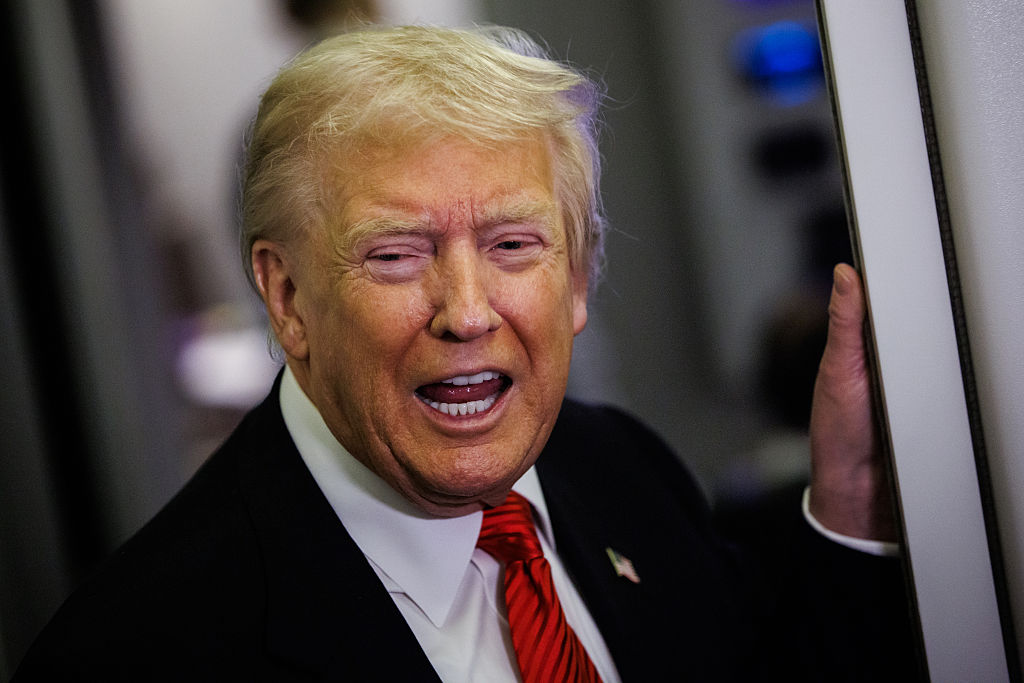It wasn’t so long ago that Congress finally kicked its ‘earmarking’ habit, where they loaded up big spending bills with special projects to benefit donors and local interest groups. The idea was to give reluctant representatives and senators a reason to sign onto the bill. Congressional leaders thought it was a small price to pay.
The benefits were obvious, both for party leaders and backbenchers. They captured specific benefits and offloaded the costs onto taxpayers. Best of all, the costs were nearly invisible until some high-profile scandals came to light. That’s what killed the whole arrangement in 2011, when Republicans gained control of the House and were forced to answer to the party’s rising populist movement.
Since so many members and their benefactors loved the practice, killing it wasn’t easy. It required a concerted political effort by outsiders who demanded sunlight and accountability. That is exactly what Tea Party Republicans did. They got some help from traditional ‘good government’ liberals, called ‘goo-goos’ by their foes. This coalition made it more costly for members to support earmarks in general, more costly, in fact, than prospective gains from securing special projects for their districts. Funding those local projects, once seen as an unalloyed benefit, fell into political disrepute. Those who ‘brought home the bacon’ were now seen as wallowing in the mud of whole pork-barrel politics.
‘The tipping point,’ John McCain told an interviewer, ‘was the $233-million bridge in Alaska to an island with 50 people on it, the so-called Bridge to Nowhere.’ Instead of disappearing quietly, as so many earmarks had, this one became front-page news in a national newspaper supplement, Parade. The magazine’s headline, ‘Are your tax dollars being wasted?’ That’s not exactly a Jeopardy question. The answer was easy for most voters. Yet it took six years for the Parade headline to yield legislative results.
What happened during those six years? The rise of a major populist, anti-Washington movement within the Republican party. The Tea Party’s rise and damaging publicity about earmarks had a powerful impact, once the Republicans captured the House. Until then, most voters didn’t care much about pork-barrel projects in other states or districts as long as they got some in theirs. Those calculations changed, thanks to a strong push by Republican populists, joined by some Democratic goo-goos. It became increasingly costly for politicians, especially Republican ones, to support a process that voters believed wasted their tax money. The movement was strong enough to sway traditional Republicans like Speaker John Boehner.
Why, then, are earmarks making a comeback? Why, as HuffPost reports, are ‘Democratic leaders in the House and Senate…planning on returning earmarks ― often derided as pork-barrel spending ― to congressional spending bills’?
Earmarks are returning two reasons. The first is that the Swamp itself has returned in full force, now that Trump is gone and his populist movement weakened. The second is that Democratic leaders desperately need a tool to round up congressional votes because their majorities are so thin. A small clique of progressives or centrists can block any bill Pelosi advocates. She and her committee chairs need an effective tool to round up votes.
Earmarks are that tool. Big City Machines used them for decades, securing a councilman’s vote by promising to hire a ne’er-do-well nephew over at Streets and Sanitation department, or put a few more policemen on patrol in his district, or pave the street in front of his mistress’s house. No journalist or political scientist has captured the process better than this brilliant scene from the 1940 movie, His Girl Friday.
HuffPost praises the revival of earmarks as one that will create ‘new opportunities for bipartisan cooperation’. Bunk, drivel, hogwash, nonsense and rubbish. Although earmarks might win an occasional Republican vote or two, that is not why Speaker Pelosi and her leadership cadre want them. They want them for the same reason Machine Politicians did: as a carrot to keep the backbenchers and their clients in line.
One indication of this partisan motivation is who is leading this effort. It is Rep. Rosa DeLauro, chair of the powerful House Appropriations Committee. It may be possible to find less partisan Democrats, but you’ll need a team of sniffer dogs to do it.
What those dogs will find is Democrats laying out trails of juicy pork. The party’s leaders hope to find a pack of ravenous followers. What they dread is voters with pitchforks, angry about footing the bill.
Charles Lipson is the Peter B. Ritzma Professor of Political Science Emeritus at the University of Chicago, where he founded the Program on International Politics, Economics and Security.

























